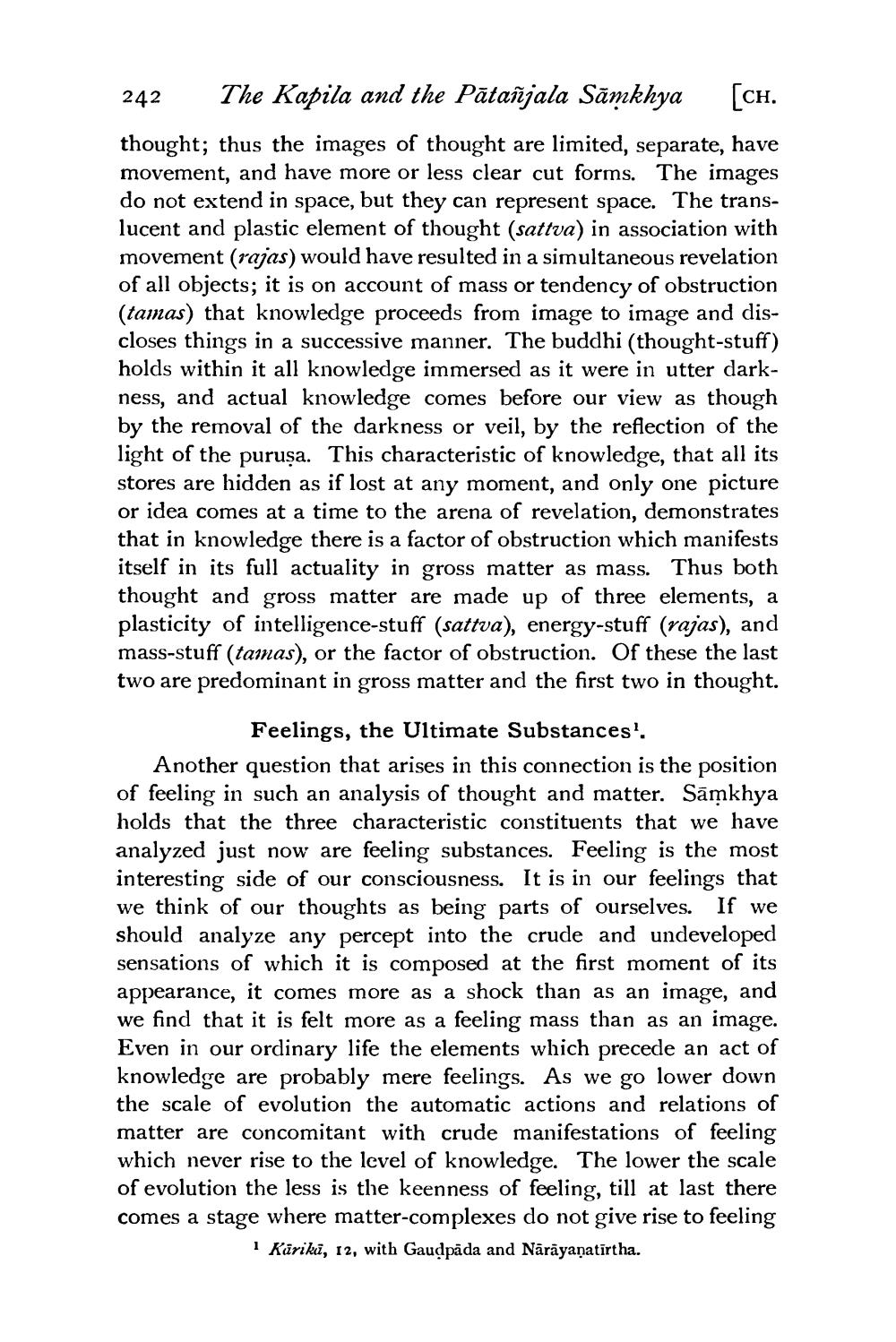________________
242 The Kapila and the Pātañjala Sāmkhya [CH. thought; thus the images of thought are limited, separate, have movement, and have more or less clear cut forms. The images do not extend in space, but they can represent space. The translucent and plastic element of thought (sattva) in association with movement (rajas) would have resulted in a simultaneous revelation of all objects; it is on account of mass or tendency of obstruction (tamas) that knowledge proceeds from image to image and discloses things in a successive manner. The buddhi (thought-stuff holds within it all knowledge immersed as it were in utter darkness, and actual knowledge comes before our view as though by the removal of the darkness or veil, by the reflection of the light of the puruṣa. This characteristic of knowledge, that all its stores are hidden as if lost at any moment, and only one picture or idea comes at a time to the arena of revelation, demonstrates that in knowledge there is a factor of obstruction which manifests itself in its full actuality in gross matter as mass. Thus both thought and gross matter are made up of three elements, a plasticity of intelligence-stuff (sattva), energy-stuff (rajas), and mass-stuff (tamas), or the factor of obstruction. Of these the last two are predominant in gross matter and the first two in thought.
Feelings, the Ultimate Substances. Another question that arises in this connection is the position of feeling in such an analysis of thought and matter. Sāmkhya holds that the three characteristic constituents that we have analyzed just now are feeling substances. Feeling is the most interesting side of our consciousness. It is in our feelings that we think of our thoughts as being parts of ourselves. If we should analyze any percept into the crude and undeveloped sensations of which it is composed at the first moment of its appearance, it comes more as a shock than as an image, and we find that it is felt more as a feeling mass than as an image. Even in our ordinary life the elements which precede an act of knowledge are probably mere feelings. As we go lower down the scale of evolution the automatic actions and relations of matter are concomitant with crude manifestations of feeling which never rise to the level of knowledge. The lower the scale of evolution the less is the keenness of feeling, till at last there comes a stage where matter-complexes do not give rise to feeling
i Kuriku, 12, with Gaudpāda and Nārāyaṇatirtha.




